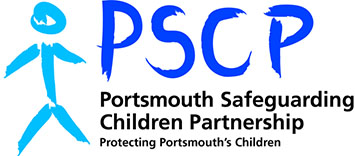Resolving professional differences – Re-think and escalation
Professional challenges should be seen as part of ‘healthy’ professional working relationships. Practitioners should be encouraged to give or receive professional challenge in a constructive and positive way. Successful joint working is reliant upon resolving disagreements effectively, and a genuine belief in a partnership approach to safeguarding children.
It is the PSCP’s responsibility to publish a Threshold Document, which sets out the local criteria for action in a way that is transparent, accessible and easily understood. However, it is recognised that working with children and families can be difficult and complex. It involves dealing with uncertainties and making important, complex judgements on the basis of incomplete information to demanding timelines in what may be changing, hostile or stressful circumstances.
In most circumstances, there is mutual agreement between professionals as to the application of thresholds when working together to safeguard children and young people. However, when there are professional concerns or disagreements over another professional’s decisions, including their actions or lack of actions, the repercussions can be extremely serious for the children and young people concerned. When communicating disagreement, professionals should remain respectful of each other at all times and this should be evidenced in both their direct and written communication, and throughout the escalation resolution process.
Problem resolution is an integral part of professional co-operation and joint working to safeguard children and it is important to:
- Ensure professional disputes do not put children at risk or obscure the focus on the child.
- Ensure professional disputes between agencies are resolved in a timely, open and constructive manner.
- Identify problem areas in working together where there is a lack of clarity and to promote resolution via amendment to protocols and procedures.
Giving and receiving honest challenge about our work with families can be difficult and taking time to ‘slow down’ and consider how to go about hearing challenge is vital to ensure children and their families are kept at the centre of our work. Resolving concerns should be seen as an integral part of how we advocate for children and their families in Portsmouth.
The PSCP has developed a new ‘Re-think’ approach, whereby professionals reflect on a case either virtually, on the telephone or face-to-face to explore the current concerns and find resolutions. There is a 5 step model for this approach that can be found within the guidance, alongside three separate strategies to help the Team Around the Family to progress together.
As the Director of Children and Families and Education says, ‘this “Rethink” process is another tool in our restorative toolbox, to help give structure and involve more people, where we need to take another look at what we are doing. It will keep us all safer, make sure we reach better decisions, make better plans and above all, keep more children safe and thriving’
Requesting an Independent Facilitator:
The PSCP encourages Re-think strategy 1 & 2 to be facilitated by the Lead Professional and / or their line manager and take place prior to an independent facilitator being requested. In scenarios whereby a Re-think Strategy 3 is required you can request an independent facilitator by completing this form
Professional Disagreement (escalation protocol) is to ensure that positive resolution of professional difference leads to better outcomes for children and the continuation of good partnership working.
Agencies should work to the principle of resolving disagreements and maintaining positive relationships at the lowest possible level, so that each agency is satisfied that their concerns have been listened to and the focus has been on achieving the most appropriate outcomes for children and families. Please always use the Re-think process first if possible.
The Joint Working Protocol for the Professional Challenge and Resolution of Professional Disagreement relates to the resolution of differences between agencies. For disputes within agencies, in house procedures should be followed.
Please also see the Process and Timescales chart for further information.
